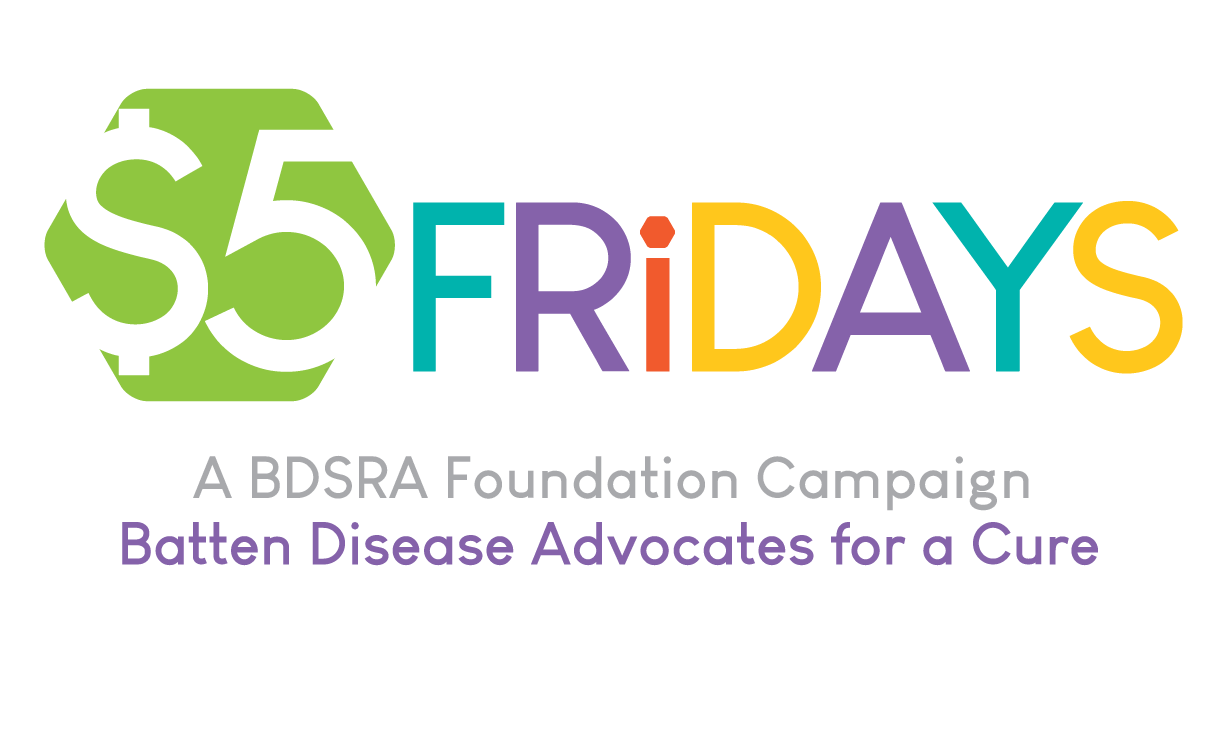When Claudia Fennell sits at the dinner table with her two oldest children to explain what newborn screening is, she asks them to imagine a different reality for themselves and their youngest sister, Penelope, who has CLN2 Batten disease.
“Imagine if Penelope started Brineura (the only FDA-approved treatment for CLN2) when she was one month old,” Fennell tells Avery and Declan. “She’d be on your soccer team. She’d be kicking your butt.”
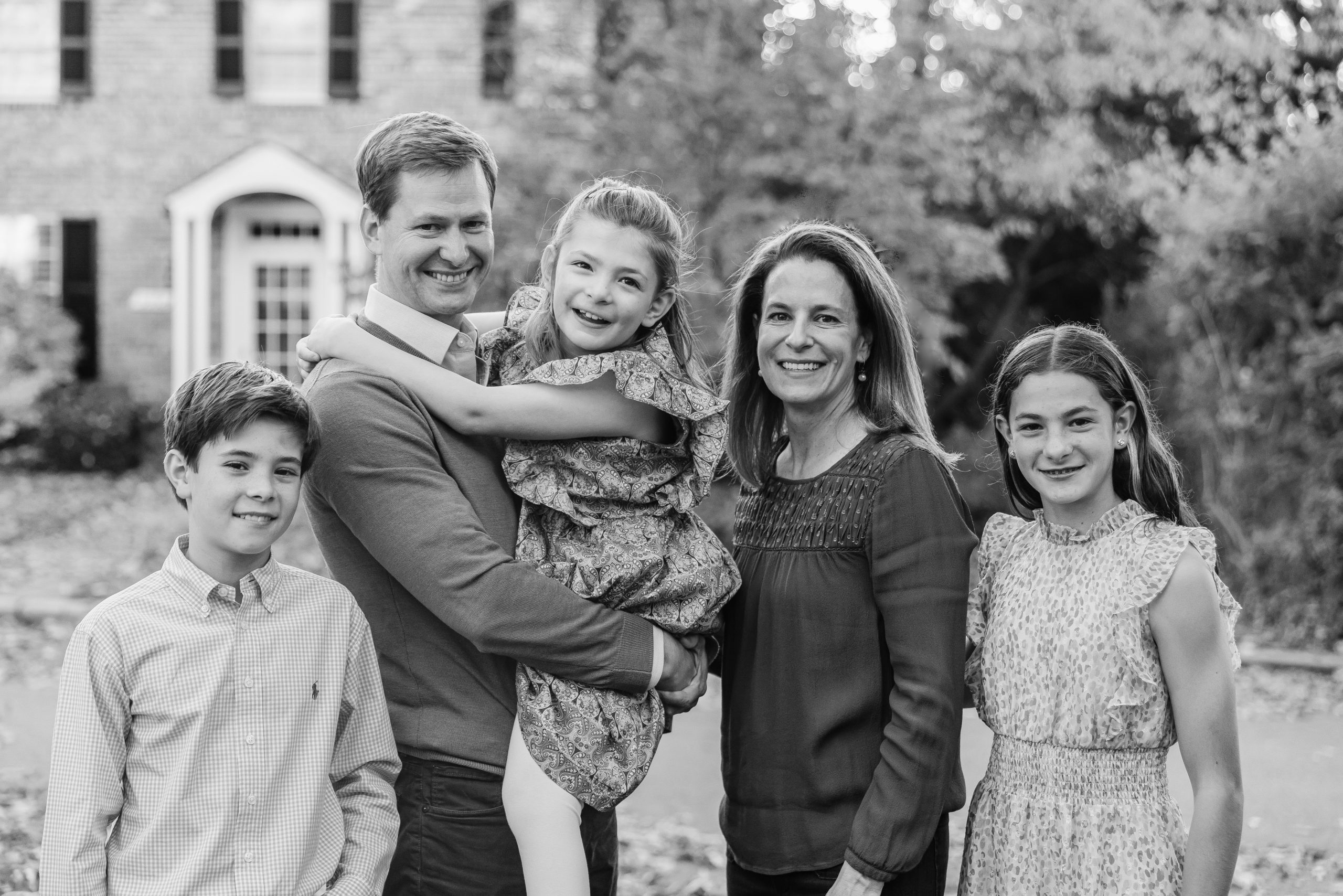
The Fennell family (pictured from left: Declan, Piers, Penelope, Claudia, and Avery).
An earlier diagnosis of Batten disease is the Fennell family’s biggest “what if.”
What if any of the 13 forms of Batten disease were on the Recommended Uniform Screening Panel?
What if Penelope, the youngest child to Claudia and Piers, was able to begin receiving Brineura (CLN2) when she was younger?
“You can’t dwell on regrets, and you can’t be angry at everyone forever,” Fennell said. “The experience of other families that have had kids that are diagnosed younger, it just is so amazing to see them grow up.”
The Fennell family’s Batten journey began a few days after Penelope’s third birthday when she began developing minor but intractable seizure activity and minor myoclonus. Her symptoms were aggressive and progressed quickly as she lost her ability to walk and eat independently as well as some verbal and cognitive abilities.
While seeking a diagnosis, the family began dipping its toe into advocacy, advocating for various testing, including genetic testing for several months. Genetic testing through Invitae led to Penelope’s CLN2 diagnosis when she was nearly four years old. She’s currently in her sixth year of receiving Brineura and has started fourth grade.
“There were a lot of medical professionals around us telling us that it really wasn’t important (and) it wouldn’t make a difference. Obviously, it did,” Fennell said regarding genetic testing. “I think that advocacy piece kind of comes into play very quickly when you’re presented with an extreme health change and health status.”
Although Fennell knows that Penelope may not benefit from potential future FDA-approved treatments or rare disease policy changes, she and the Batten community continue to advocate for current and future families affected by Batten.
According to the EveryLife Foundation, authorization for the federal newborn screening programs expired in September 2019.
Fennell participated in the EveryLife Foundation’s Rare Across America, advocating for the support and passage of the Newborn Screening Saves Lives Reauthorization Act to her U.S. House Representative, Congressman Jamie Raskin of Maryland’s 8th District.
She followed that up by advocating for the same bill during Rare Disease Week in 2020, meeting virtually with Maryland Senator, Ben Cardin.
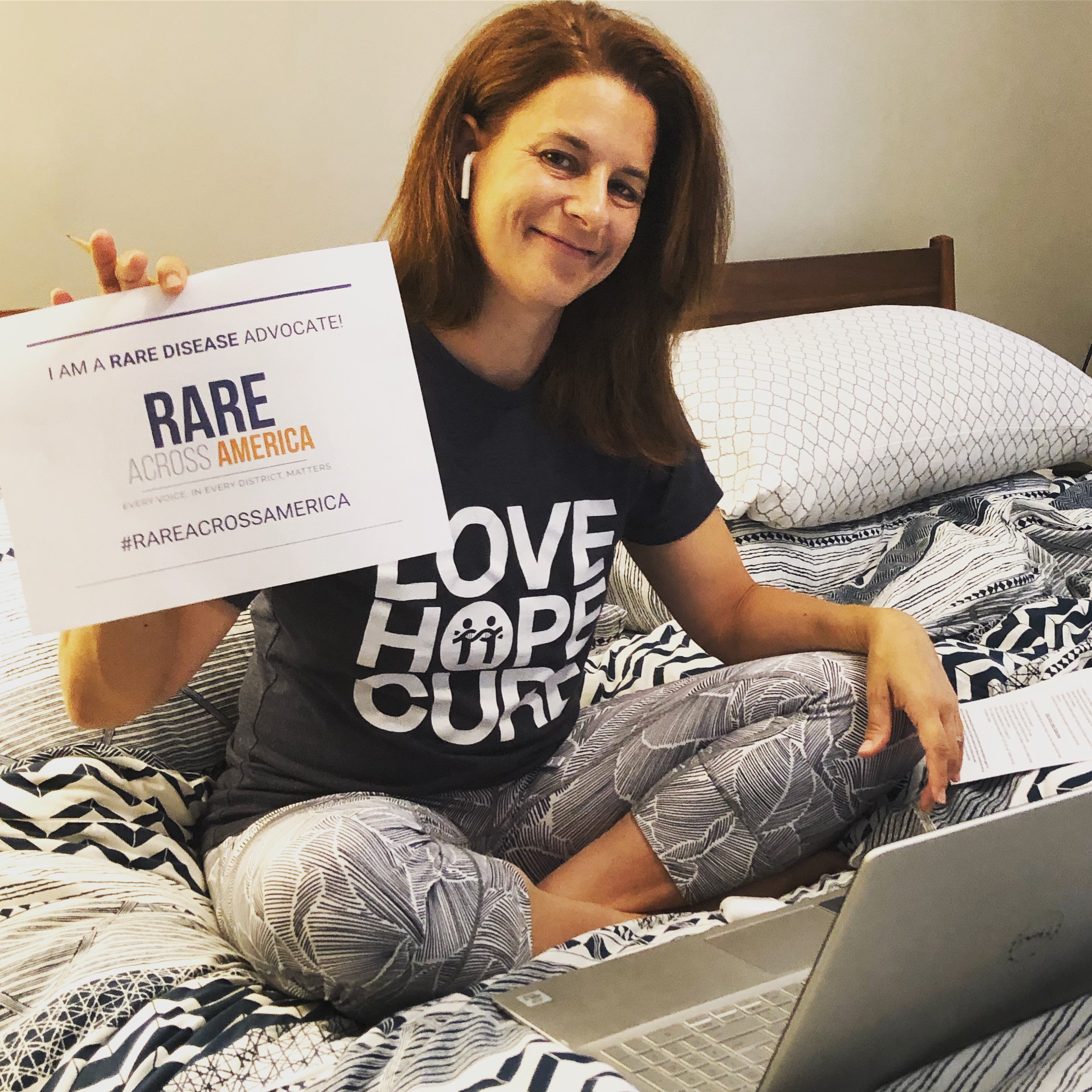
Fennell participated in Rare Across America in 2019 followed by Rare Disease Week in 2020.
Currently, new federal legislation for newborn screening is being crafted. Advocacy for newborn screening also focuses on state-level legislation where advocates urge state legislatures to pass legislation to test newborns for more or all of the conditions listed on the federal Recommended Uniform Screening Panel (RUSP). The diseases that newborns are screened for vary from state to state.
None of the 13 types of Batten disease are on the RUSP.
“Newborn Screening will be everything in the Batten community,” Fennell said. “We have concrete examples of children proving that earlier is better with Brineura (and) CLN2 treatment, and we just need our legislation and our state-level systems of implementation to recognize that and catch up with it and save lives.”
Fennell’s advocacy work for newborn screening took a step further in 2022 when she twice provided testimony in support of Maryland RUSP alignment legislation HB 109 and SB 242, which implemented a two-year timeline in which screening must begin for new conditions added to the federal RUSP.
In her brief, less-than-a-minute virtual testimony, in front of the Maryland House of Representatives, Fennell, with assistance from the EveryLife Foundation, told Penelope’s story — the “what if” she and her family ask themselves, and highlighted the burden and reality of rare disease.
“I tried to point out things like I and other primary caregivers are completely removed from the workforce,” Fennell said. “We are unable to volunteer in our communities (and) at our schools. We are unable to effectively parent our other children in a responsible and thorough way.”
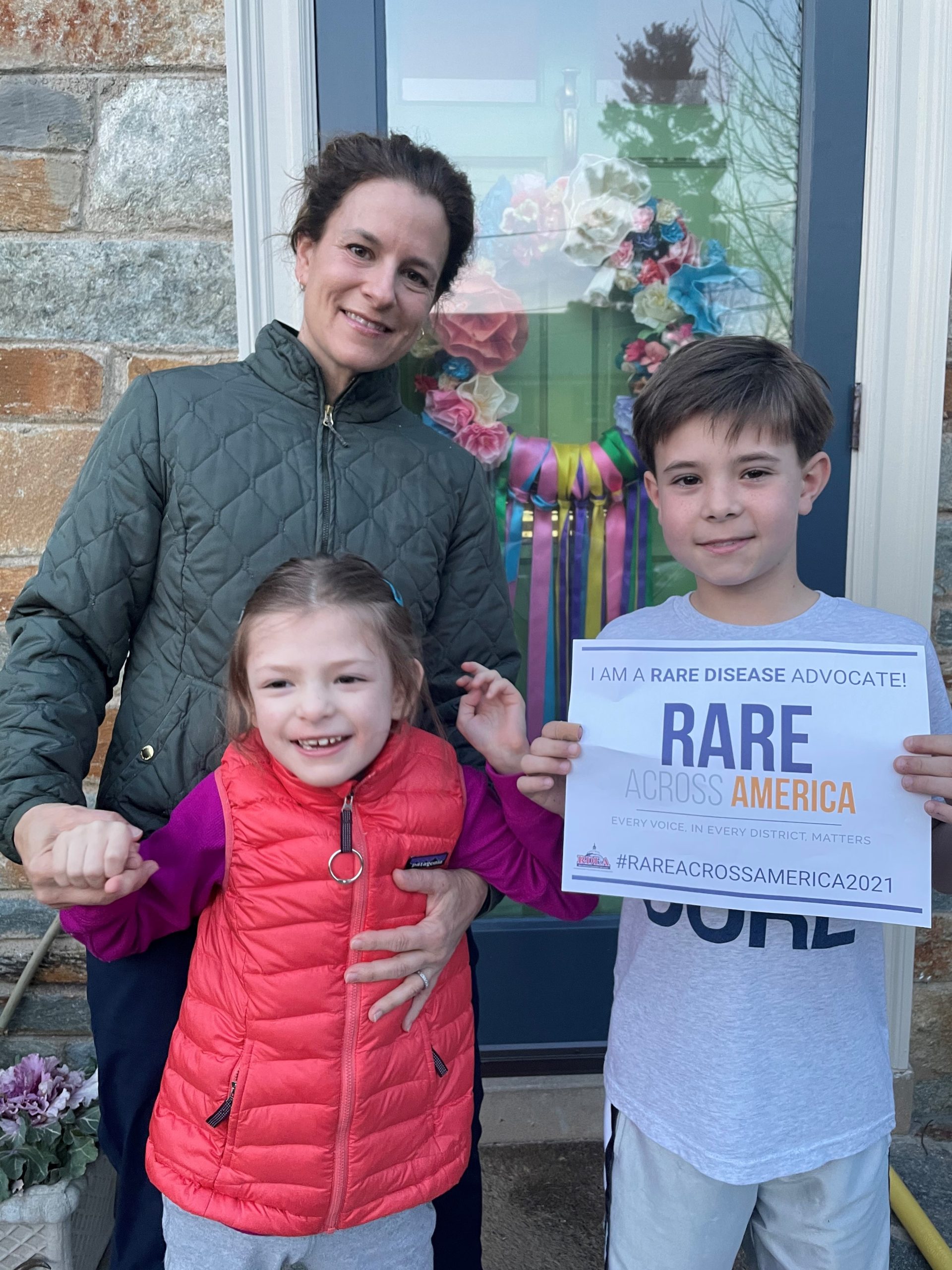
Claudia Fennell (back left) poses with her daughter Penelope (front left) and son Declan (far right).
A common barrier that stands in the way of states adding more diseases/conditions to their newborn screening lists is money.
“It’s expensive to add diseases to the newborn screening panel for these states,” Fennell said. “You wanted to scream at them that this is really a humanitarian crisis. This is about saving lives and families, but mostly what they wanted to know was how much does it cost. How much are we saving by keeping this child healthy and that’s hard to hear.”
Fennell recalled hearing testimony from a fellow rare disease mother whose son passed away from a disease that’s on the federal RUSP that Maryland had not added to their newborn screening list. The opportunity to connect with fellow advocates and hear their stories was one of the highlights of Fennell’s experience.
Together, the advocates’ testimonies proved effective as both bills passed and were signed into law by then-Maryland Governor Larry Hogan in May 2022.
“I know it was just one little piece of the puzzle,” Fennell said. “But I think it helps people kind of recommit themselves to speaking up for themselves and for others.”
Over time, those small puzzle pieces may culminate into a new impactful reality for Batten families.
There are promising clinical trials for new treatments and therapies and continuous battles to get more into the clinical trial stage. There are more Batten families taking the time to share their stories to advocate for the community and urge policy and systemic change for rare diseases.
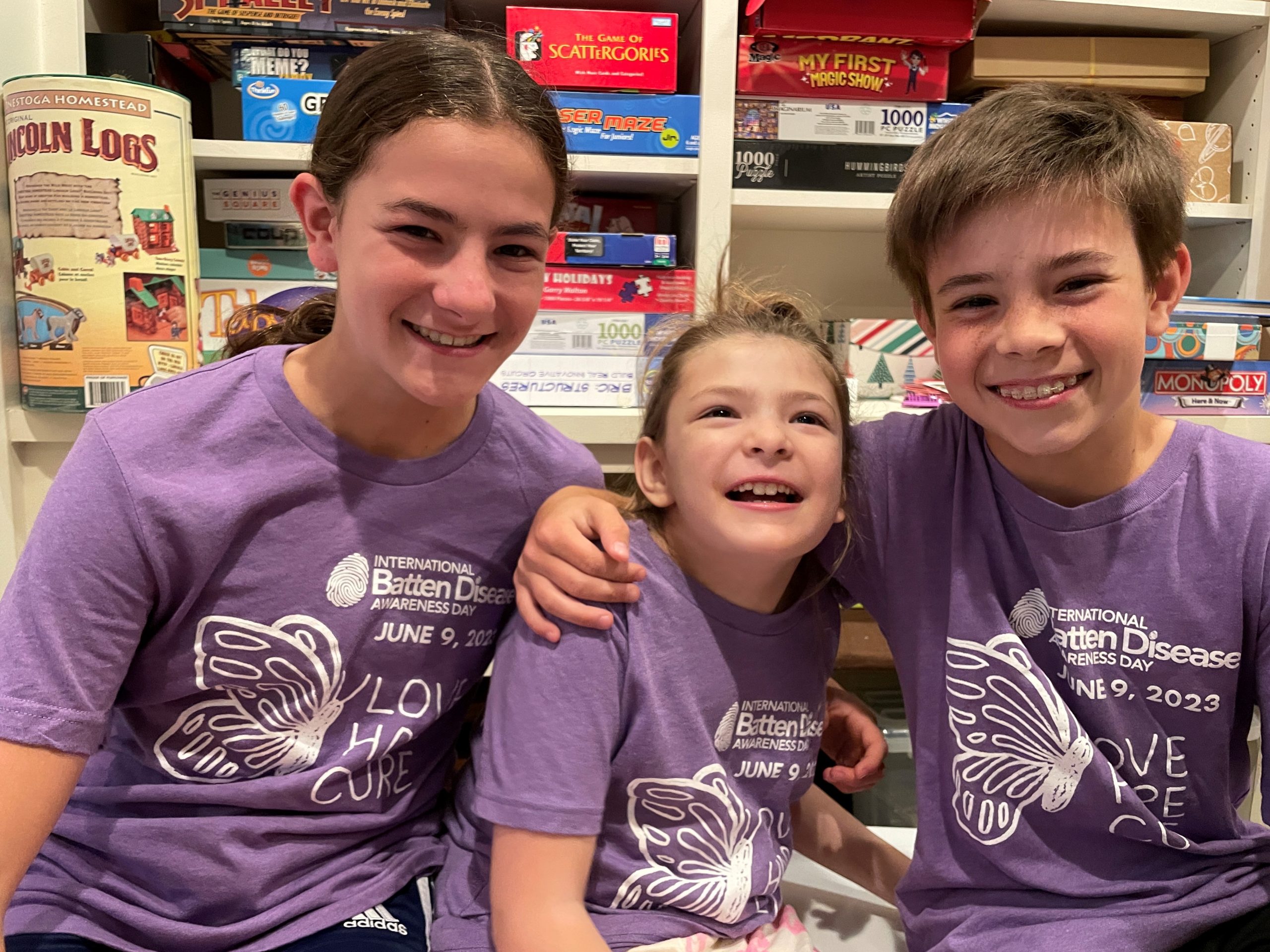
The Fennell siblings (pictured from left: Avery, Penelope, and Declan)
Fennell and fellow Batten mothers gave presentations to the FDA in November 2022 during the FDA CBER OTAT Patient-Focused Drug Development Listening Meeting — Patient Perspectives on Gene Therapy Products.
And perhaps one day, all of this will culminate in newborn screening aiding the burden of Batten families so they won’t have to ask themselves: What if?
“We are so close to having really effective therapies cross that finish line,” Fennell said. “I know that nothing will be available in time for my child, but I have every hope that kids being born now out there will be able to access therapies.”

